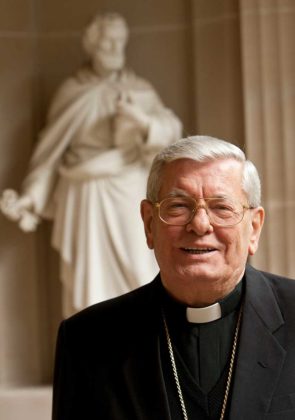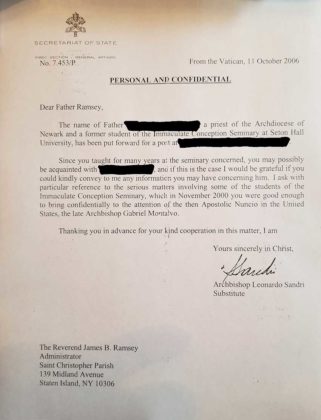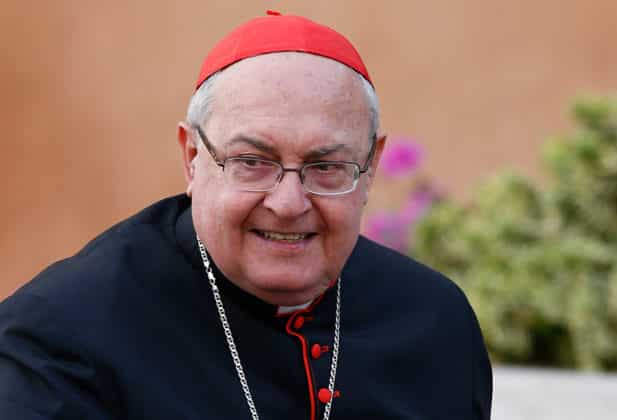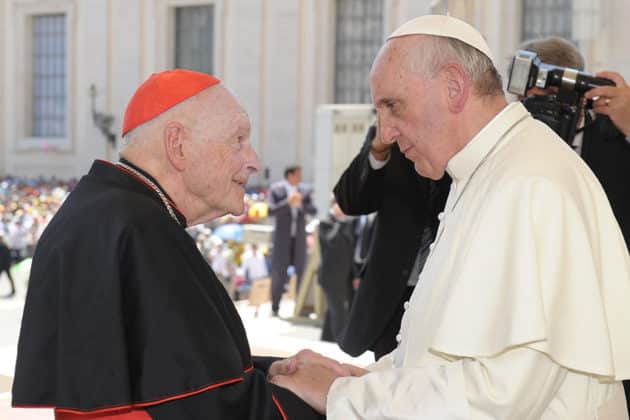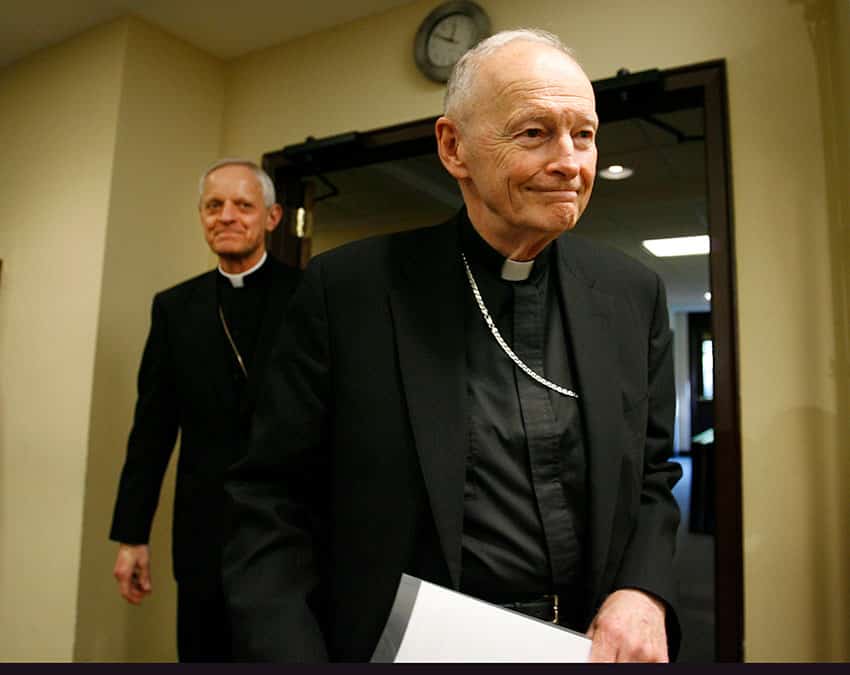
Even though the Vatican stripping former Cardinal Theodore E. McCarrick of his clerical status on 16 February was expected, the news cast a somber mood over those faith communities already grappling with what had happened while he was among them in the past and whether the Vatican’s decision can help the church in the US move forward.
A panel of the Congregation for Doctrine of the Faith found him guilty on 11 January, the Vatican said. McCarrick appealed the decision, but the appeal was rejected on 13 February by the congregation itself. McCarrick was informed of the decision on 15 February and Pope Francis “recognised the definitive nature of this decision made in accord with law,” making a further appeal impossible.
Unable to exercise priesthood
By ordering McCarrick’s “dismissal from the clerical state,” the decision means that McCarrick loses all rights and duties associated with being a priest, cannot present himself as a priest and is forbidden to celebrate the sacraments, except to grant absolution for sins to a person in imminent danger of death.
The only church penalty that is more severe is excommunication, which would have banned him from receiving the sacraments. The other possible punishment was to sentence him to a “life of prayer and penance,” a penalty often imposed on elderly clerics; the penalty is similar to house arrest and usually includes banning the person from public ministry, limiting his interactions with others and restricting his ability to leave the place he is assigned to live.
McCarrick’s punishment is the toughest meted out to a cardinal by the Vatican in modern times.
In announcing its decision, the Vatican said McCarrick was found guilty of “solicitation in the sacrament of confession and sins against the Sixth Commandment with minors and with adults, with the aggravating factor of the abuse of power.”
Related: Pope wants Rome summit to lead to action
Related: Women religious thank Francis for speaking out
Victim speaks out
James Grein, one of those who have publicly said he was abused by the former cardinal, said in a statement released by his attorney that “today I am happy that the pope believed me.”
“For years I have suffered, as many others have, at the hands of Theodore McCarrick,” he said in the statement. “It is with profound sadness that I have had to participate in the canonical trial of my abuser. Nothing can give me back my childhood and I have not taken any pleasure in testifying or discussing what happened to me. There are no winners here.”
However, Grein, who provided Vatican officials with accounts that McCarrick sexually abused him as an 11-year-old child, including during confession, said he was “hopeful now I can pass through my anger for the last time. I hope that Cardinal McCarrick will no longer be able to use the power of Jesus’ church to manipulate families and sexually abuse children.”
“This great historical and holy situation is giving rise to all Catholics and victims of abuse across the world,” he said. “It’s is time for us to cleanse the church.”
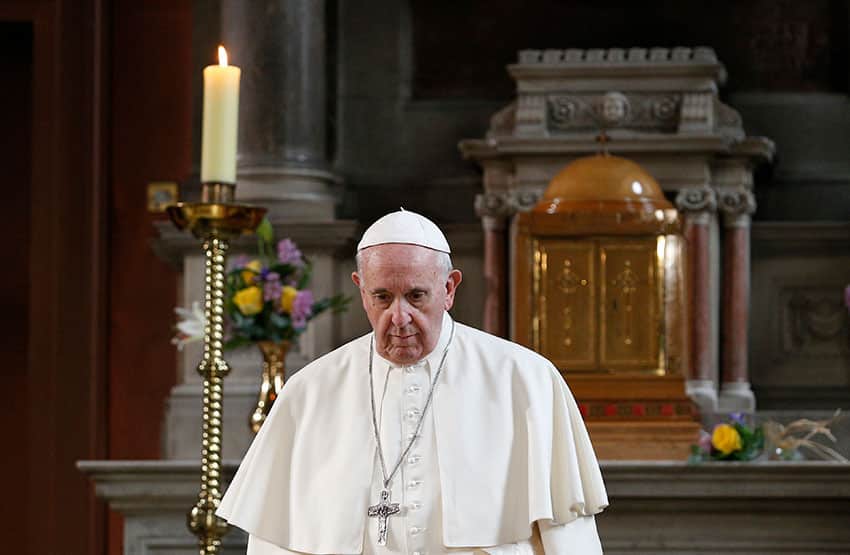
Where to for the former cardinal now?
As of the day of the announcement, McCarrick was believed to be living in a small religious community of Capuchin Franciscans, in rural Kansas, where he had been ordered to go by the Vatican to live since late September “a life of prayer and penance” until the accusations against him could be examined.
The decision to whether to remain there after the Vatican’s action seems to rest with McCarrick and the religious community of Capuchins, which according to its website is made up of five priests and one religious brother. When the decision to find a place where then-Archbishop McCarrick could reside while a decision on his status was being weighed, Bishop Gerald Vincke who heads the Diocese of Salina where the friary is located had said that in allowing Mr McCarrick to live in the diocese, he had to reconcile his feelings of “disappointment, anger and even resentment” toward him.
On 16 February, the bishop thanked the religious community of Capuchins “for their charity and compassion shown to all who seek refuge in the church, as well as the remarkable people of Victoria for their mercy in this difficult situation.” He added that he hoped the Vatican decision “may help bring healing to all affected by sexual abuse and those hurt by this scandal.”
The day seemed to be one of reckoning as brother bishops and organisations that once had worked, and sometimes praised, the former prelate for his work grappled with the Vatican’s pronouncement.
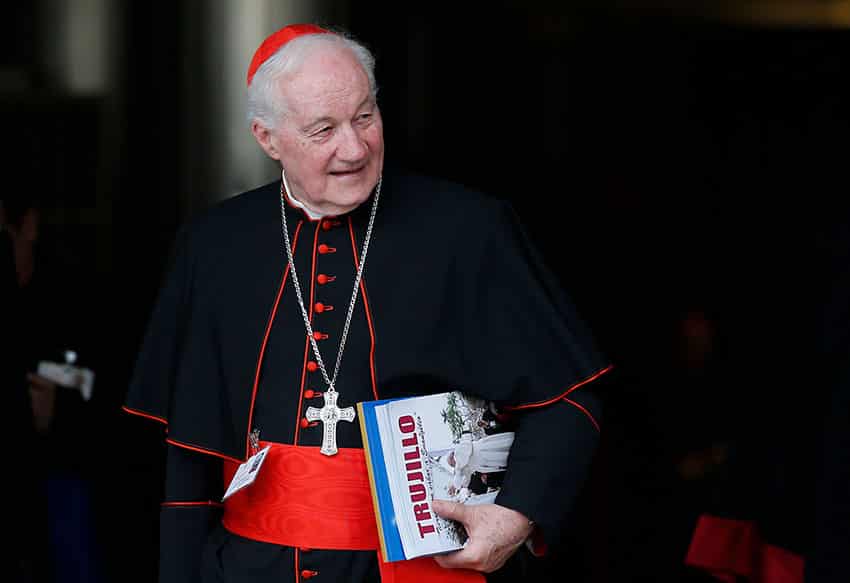
Honourary degree revoked
The University of Notre Dame almost immediately announced it was rescinding the honourary degree it conferred on him in 2008.
Boston Cardinal Sean O’Malley called the pope’s action “important in administering justice” for McCarrick’s “crimes and sins” but “it cannot in and of itself provide healing for those so terribly harmed by the former archbishop’s scandalous violations of his ministry or for their families.”
This action “by itself will not bring about the healing needed in the Catholic community and our wider society; both are justifiably appalled and outraged that the former archbishop could have for so long inflicted harm on minors and young adults vulnerable in the life of the church,” said Cardinal O’Malley, who heads the Vatican’s sex abuse advisory commission.
Church leaders “are rightfully judged by our actions and not our words,” he continued. Apologies are part of the healing process but without action “they ring hollow in light of the revelations of sexual abuse by clergy that have come forth during the past year and almost 20 years prior.”
The church’s leadership “must enforce accountability for cardinals and bishops if we hope to have the opportunity to engage the laity in the work of tangible change in the church.”
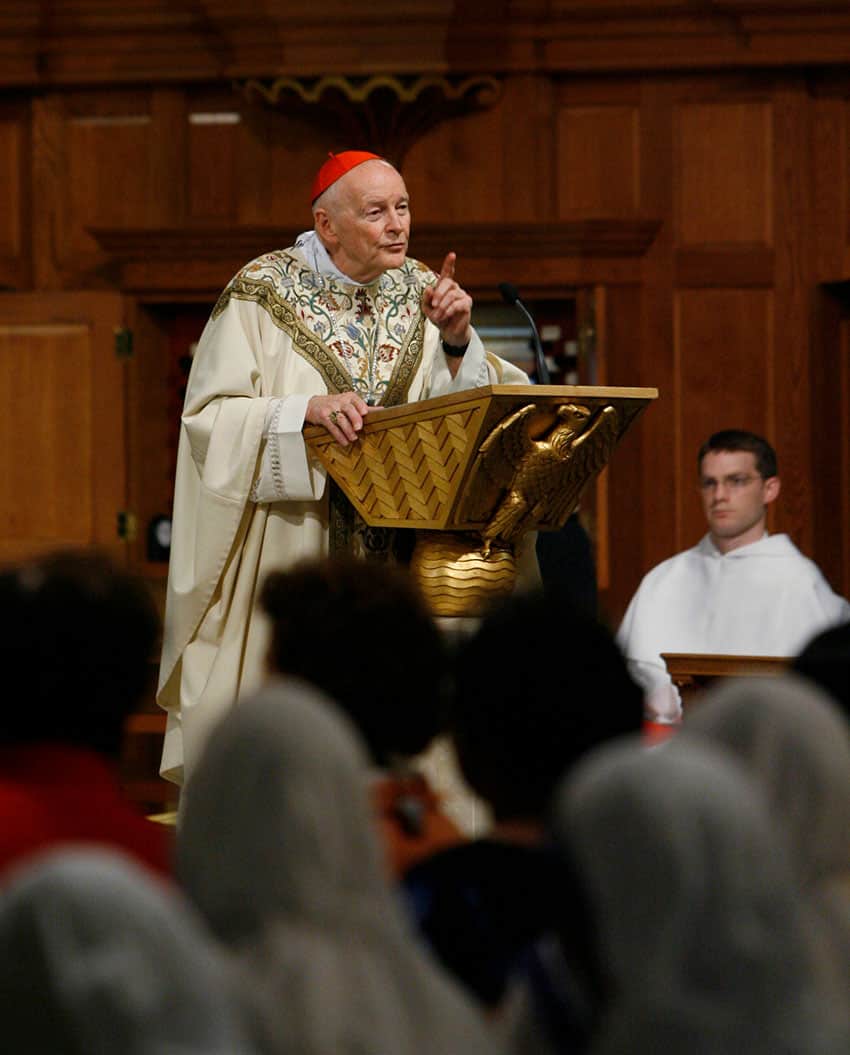
Questions remain
Groups such as The Catholic Association said in a statement that even though the decision “comes none too soon … it’s only a first step in addressing the McCarrick scandal and eliminating the larger scourge of sexual abuse at every level in the church.”
“Much work remains – holding accountable those in the church hierarchy who looked the other way as McCarrick rose through their ranks and ensuring that the Catholic Church worldwide is united in safeguarding children and young adults from sexual abuse and restoring priestly celibacy among its shepherds,” said Andrea Picciotti-Bayer, legal adviser for the organisation.
“McCarrick’s [laicisation] is a start, but only a start as the Vatican’s abuse summit begins next week in Rome.”
Rome Summit
As The Catholic Weekly was going to press this week, a summit of the heads of bishops’ conferences from around the world on sex abuse called by Pope Francis was set to take place from 21-24 February at the Vatican.
The coming days no doubt will bring more questions about what the decision means in the historical spectrum of the Catholic Church at all levels.
Massimo Faggioli, a church historian and professor of theology at Villanova University in Philadelphia, said the decision is “theologically important because it would signal that sexual abuse is incompatible with priesthood.”
“It would become part of the discussion on what’s the meaning of ‘ontologically changed’ by priestly ordination,” he said. “Canonically, it would not be the first time, but the first for a cardinal who ecclesiologically is one of the members of the presbyterium of the bishop of Rome. Symbolically, the laicisation of McCarrick would be acknowledging the wound inflicted on the pope himself.”

